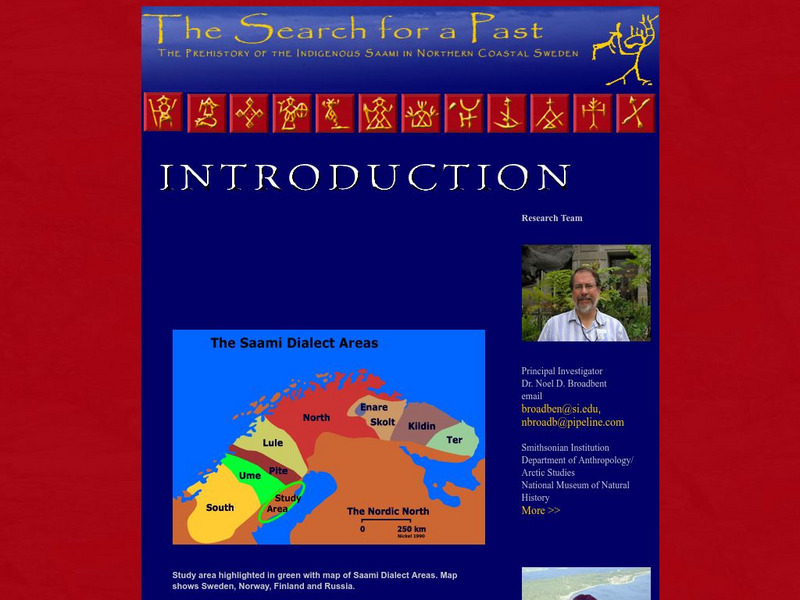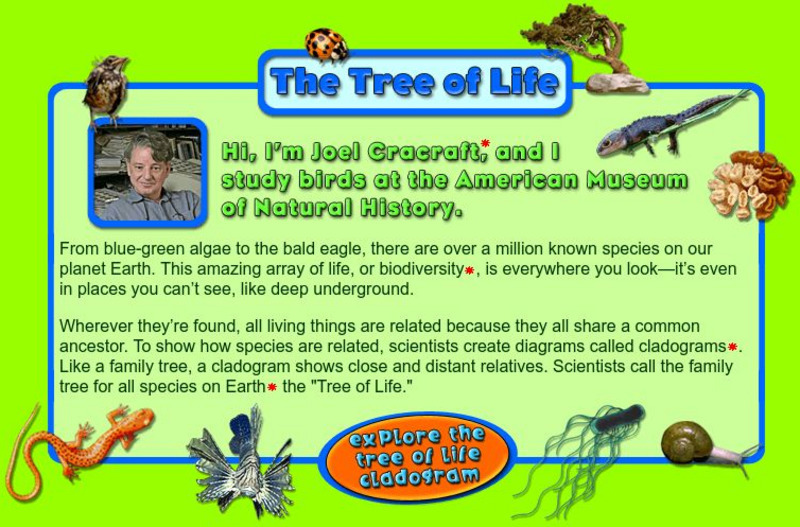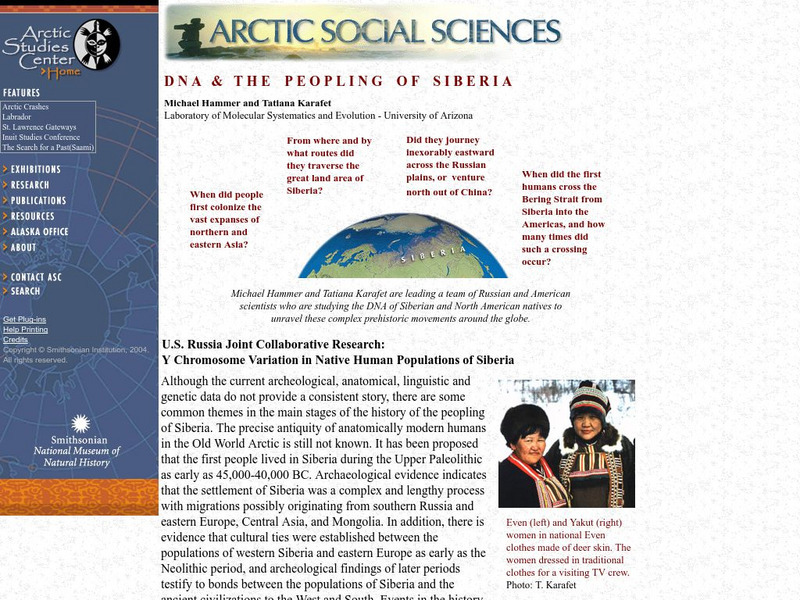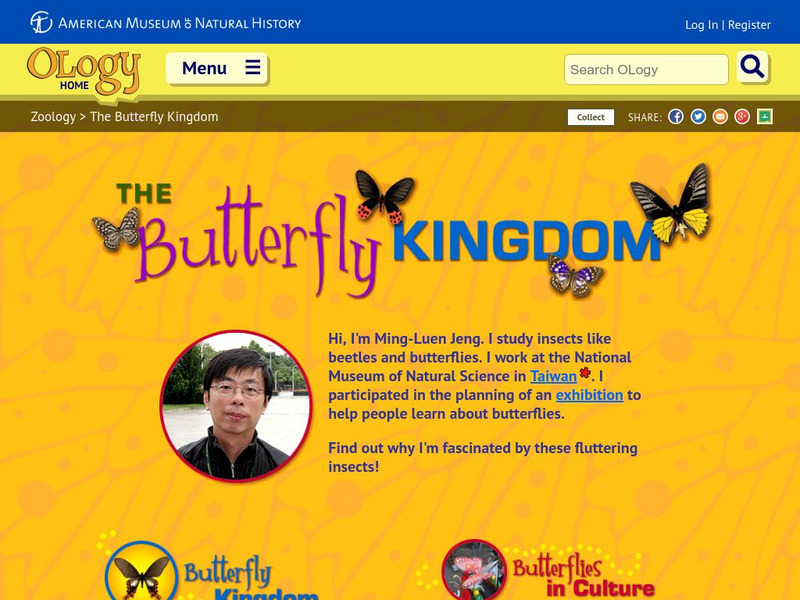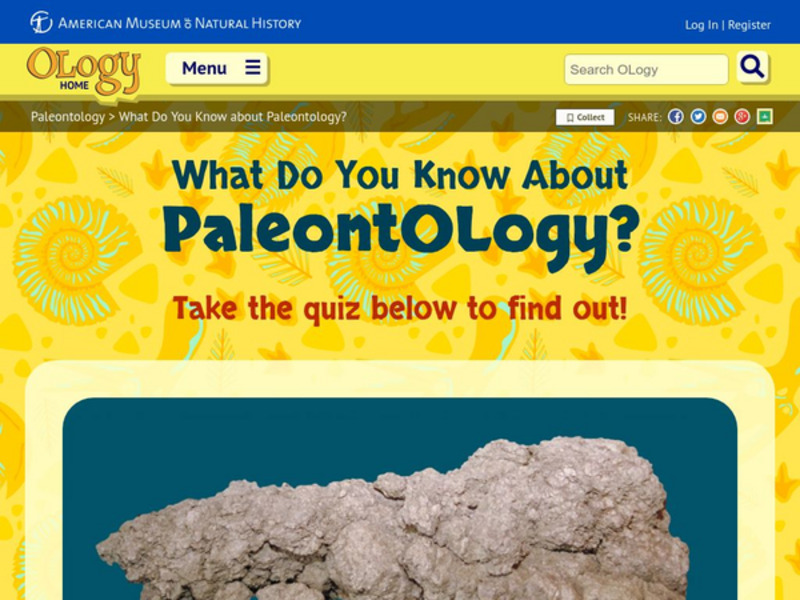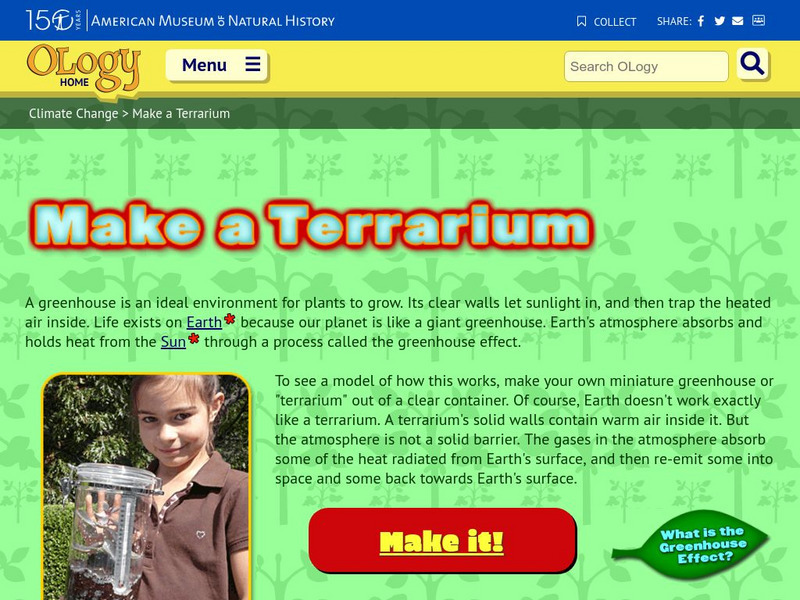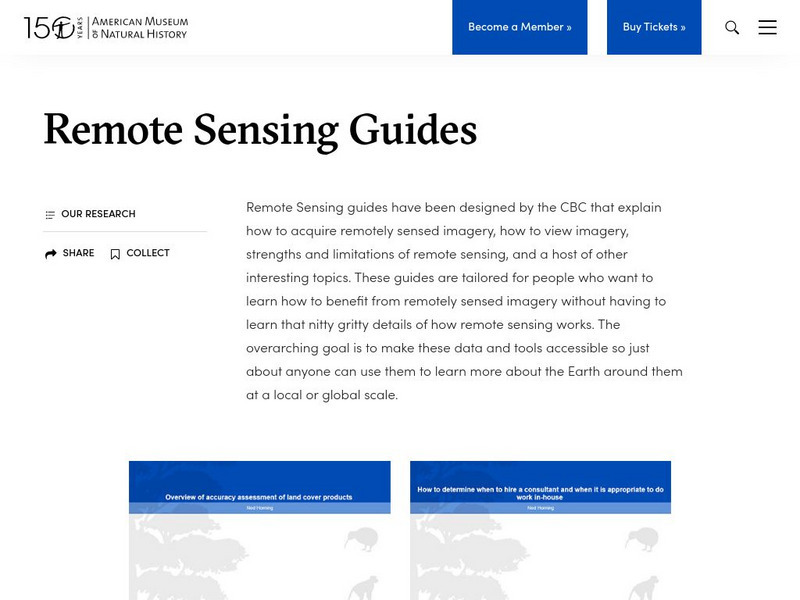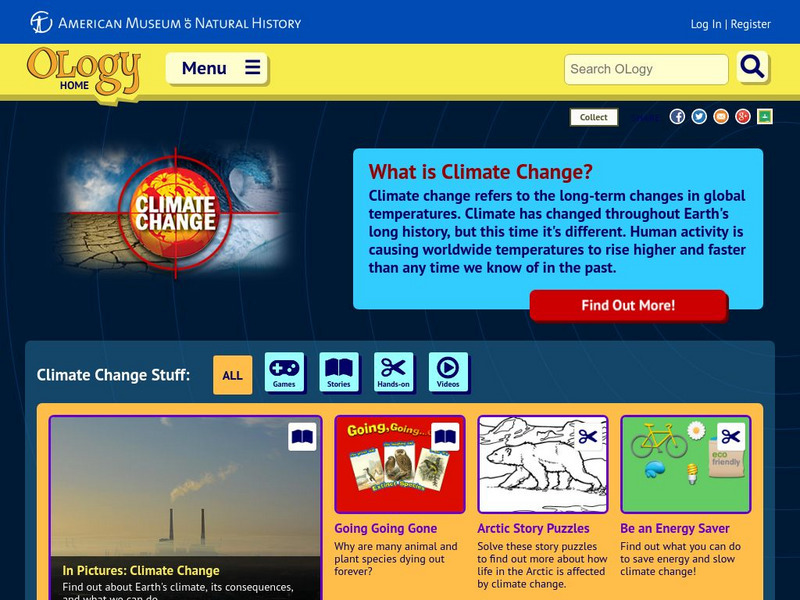Hi, what do you want to do?
American Museum of Natural History
American Museum of Natural History: Inca Investigation
Be an archaeologist and examine maps and ancient artifacts relating to the Inca empire.
English Zone
English Zone: Los Angeles Area Gets a New Spider
This is an article from The Natural History Museum of Los Angeles about a new tropical "Brown Widow" spider found in Los Angeles; it is followed by 15 self-grading questions.
Smithsonian Institution
National Museum of Natural History: Paleobiology: Absolute Dating
An explanation of radiometric or absolute dating of geological formations based on using the half-life of radioactive elements to figure out how old given rock layers are. A link on the left provides information about relative dating as...
Smithsonian Institution
National Museum of Natural History: Indigenous Saami in Northern Coastal Sweden
The Saami people of Sweden are the focus of study for this Smithsonian research team. There are photos of Saami archaeological sites and descriptions of their cultural practices. Links for further research are provided.
American Museum of Natural History
American Museum of Natural History: How Lou Got the Flu
Illustrated storybook description of how the influenza virus spreads from animals to humans.
American Museum of Natural History
American Museum of Natural History: O Logy: Dive Into Worlds Within the Sea
Learn about three different marine ecosystems: coral reefs, the continental shelf, and the deep sea. Interactive game included, which will help players chart the interrelationships among organisms that live in each ecosystem.
American Museum of Natural History
American Museum of Natural History: O Logy: The Tree of Life
Learn about the diversity of species on Earth by exploring a cladogram, a graph-like tree of life that illustrates relatedness among species. Includes instructions for reading cladograms and a pie chart that summarizes the percentages of...
Smithsonian Institution
National Museum of Natural History: Arctic Science: Dna and the Peopling of Siberia
Scientists from the University of Arizona are conducting Y chromosome research on native Siberians to try to determine whether there is a genetic affinity to North American native people. The rationale and direction of this research are...
Smithsonian Institution
National Museum of Natural History: Expedition to Galapagos
Accompany scientists on an exciting trip to the Galapagos as they make a film on the islands for IMAX. Featured are a fantastic photo journal and video footage.
American Museum of Natural History
American Museum of Natural History: Ology: The Butterfly Kingdom
Learn about Taiwan's amazing wealth of butterflies, many of which can be found nowhere else in the world. See how butterflies have influenced Taiwanese culture, how some people have made a business from butterflies, and about efforts...
American Museum of Natural History
American Museum of Natural History: O Logy: What Do You Know? Archaeology
A ten question quiz on the study of archaeology.
American Museum of Natural History
American Museum of Natural History: O Logy: What Do You Know? Dinosaurs
Test knowledge about dinosaurs with this ten question quiz.
American Museum of Natural History
American Museum of Natural History: O Logy: What Do You Know? Climate Change
Test your knowledge on climate change with this short quiz.
American Museum of Natural History
American Museum of Natural History: O Logy: Layers of Time: Fossil Game
Game through which students order layers of sedimentary rock, from oldest to newest, based on the type of fossils they contain.
Carnegie Museum of Natural History
Carnegie Museum of Natural History: Needle to the North
Online exhibit explores Arctic expeditions of the twentieth-century via the photos and field notes of researchers who experienced the "alien landscape rife with cold, darkness, and isolation."
Smithsonian Institution
National Museum of Natural History: Ocean Portal: Corals and Coral Reefs
Learn about corals and the importance of coral reefs to ocean ecosystems. Find out how reefs are created, what threats they face, and what kinds of conservation tactics are being used to protect and preserve them.
American Museum of Natural History
American Museum of Natural History: O Logy: Stuff to Do: Create a Coral Reef
Detailed instructions, with photographs for every step, for how to build a coral reef diorama.
Smithsonian Institution
National Museum of Natural History: The Hall of Arctic People
This is the online version of the Smithsonian Institute's exhibit devoted to the people of the Siberian and North American Arctic. The mannequins around the walls represent the peoples of the Crossroads region, dressed in traditional...
American Museum of Natural History
American Museum of Natural History: Greenhouse Effect: Make a Terrarium
Capture the essence of life within your own miniature greenhouse, or terrarium.
American Museum of Natural History
American Museum of Natural History: Biodiversity Informatics: Remote Sensing
Guides and interactive tools to understand how remote sensing works. It includes links to several articles on various aspects of remote sensing.
American Museum of Natural History
American Museum of Natural History: Sharks and Rays: Myth and Reality
Learn about the reproductive system of the dogfish shark through a video gallery. Also read about the myth that sharks must constantly swim or they will die. PDF transcripts are available for each video.
American Museum of Natural History
American Museum of Natural History: Water: H2 O = Life
This exhibition illuminates the concept of ecological balance and the challenge of managing the Earth's water supply. Its videos and images help explain just how important water is to sustaining life.
American Museum of Natural History
American Museum of Natural History: Ology: Climate Change
This resource offers a large collection of games, puzzles, activities, and information pages on the topic of climate change.
American Museum of Natural History
American Museum of Natural History: Anthropology: Sounds of the Silk Road
Travel the tales and sounds of the Silk Road through this resource and understand how music shaped Asian, and eventually, western cultures. You can create your own music to share with your friends, and gain knowledge about common...







